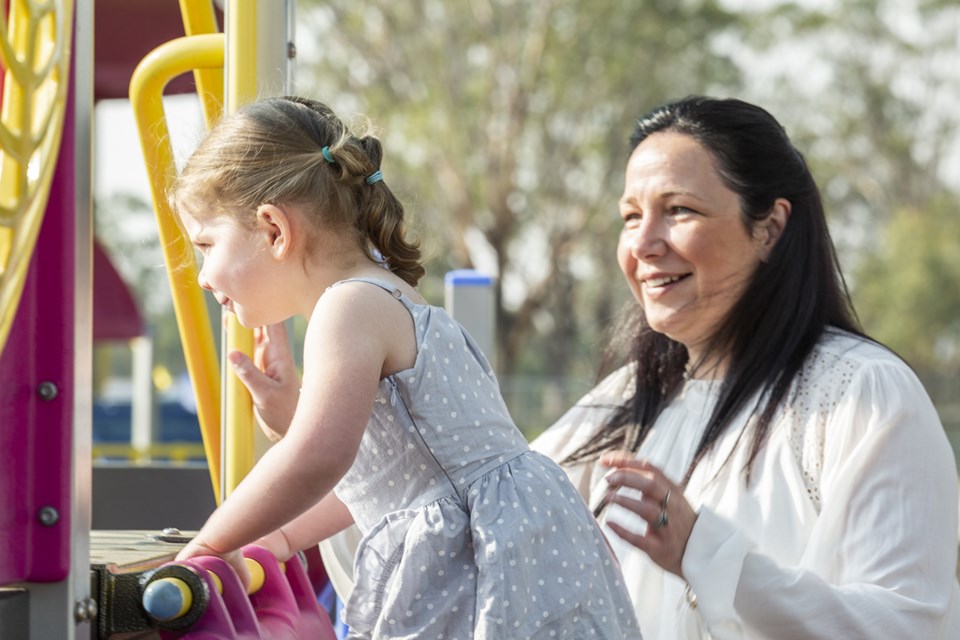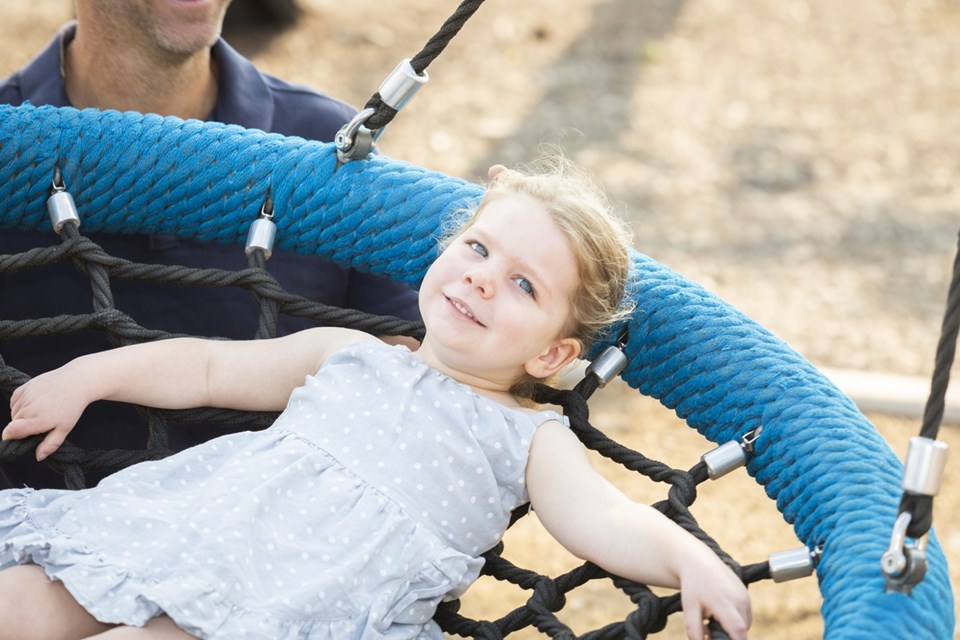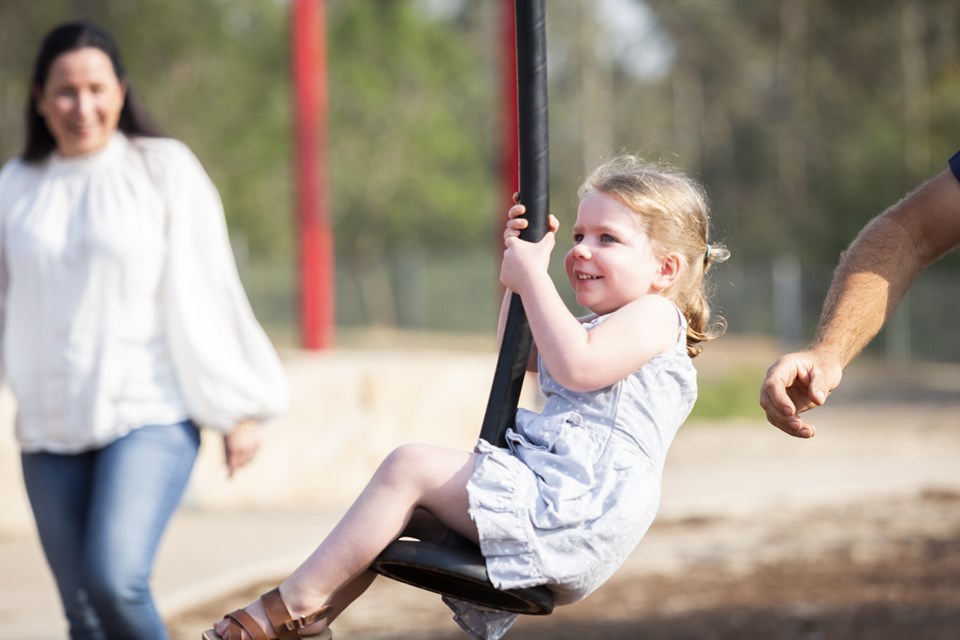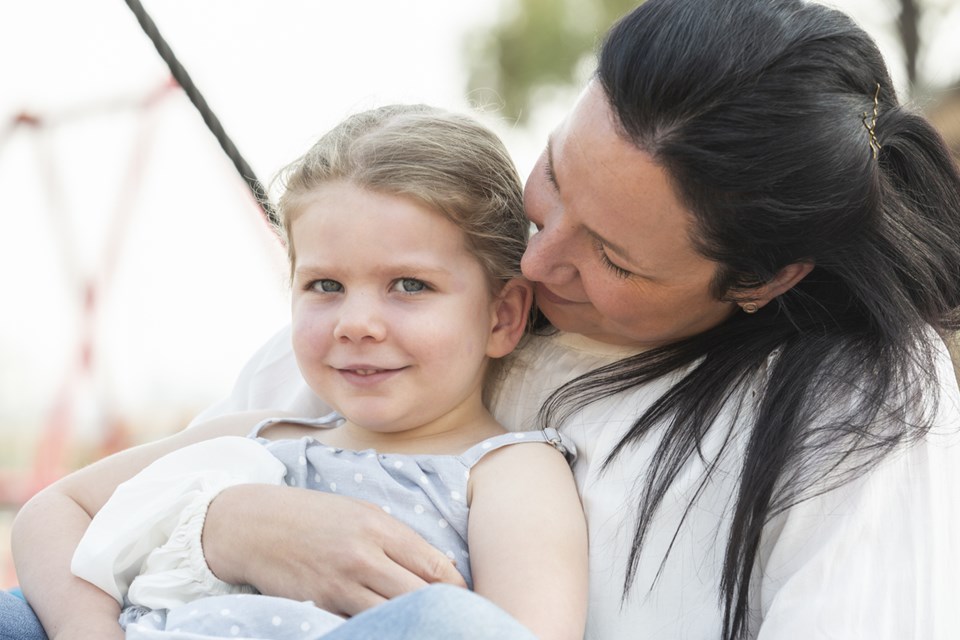"At the end of the day, your child is going to amaze you."
 |
 |
Kylie and Kris were getting ready to leave hospital with their newborn daughter, Anika. “We were in that happy little new baby bubble,” says Kylie. “We were giving her a bath when she started having seizures.”
The next few hours are still a blur for Kylie. Anika was rushed to the neonatal intensive care unit. Once Anika was stabilised and breathing again, the doctors ordered an MRI scan.
“We were standing by Anika’s bed, and the head of the unit asked to talk to us in the conference room,” says Kylie. “I remember looking at Kris and thinking they don’t take you to a conference room unless it’s serious.”
The doctors told Kylie and Kris that Anika had had a severe stroke. The couple reacted with shock and disbelief.
“We didn’t know this could happen. All Anika’s tests, all her check-ups through the prenatal stage, everything was fantastic,” says Kylie.
The worst thing for the new parents was the uncertainty about the path forward. “Adults go through rehabilitation, but how do you rehabilitate a 36 hour-old baby? What do you do? We just wanted to know the next step.”
After four days, the medical team decided that Anika could be discharged from intensive care. The family went back to their local hospital for three days before being sent home.
“We were happy because we were so sick of being in hospital. But what happens when we get home? What do we do? The answer we got was ‘Love your baby,’” says Kylie.
The first six weeks at home were a confusing time for Kylie and Kris. They were warned that Anika might not meet any of the normal developmental milestones, including walking and talking. Once they got home, they felt they had little support to adjust to their new situation.
Fortunately, a referral to Cerebral Palsy Alliance NSW changed things for them.
 |
 |
“I remember walking through the doors fighting back the tears, holding on to Anika, and feeling like if anyone touched her I would probably bite their head off,” Kylie says.
“And then this beautiful lady walked down the stairs and introduced herself as Anika’s physiotherapist. She looked at Anika, and she looked and me, and she said, ‘Do you think I could have a hold of your baby?’ I just said ‘Yes.’”
Anika’s physiotherapist helped change the way Kylie and Kris thought about Anika’s situation, as well as providing the emotional support they needed.
This experience was in sharp contrast to some of their interactions with other health professionals. Kylie remembers being very excited about going to a meeting with Anika’s neurologist, because Anika had started to prop herself up.
“He said to us, ‘Don’t count your chickens yet, your problems are to come’” Kylie says. “I spoke to Anika’s physiotherapist about it and she told me ‘These guys are not seeing children that are getting rehabilitation as early as Anika.’”
Kylie hopes that through exposure to the results of early rehabilitation, neurologists and paediatricians might start to shift their ideas about what is possible. “It’s so important to make sure everyone has access to early rehabilitation. If we’d waited until she was two to start all these therapies, she may not be where she is now.”
Kylie wants other parents to know the importance of seeking help when things get too much. “Kris was worried about me and I was worried about him, but neither of us were talking about it. And before I knew it, it was out of control. It took me a really long time to recognise it,” Kylie says.
“Kris identified very early on that I needed someone to talk to. I broke down at home one day, and Kris pulled these phone numbers out of his wallet, numbers for psychologists and other support. He’d been collecting them for when I was ready.”
Another piece of advice from Kylie is to stay positive. “As hard as it is some days, I always try to find a positive thing out of every day. And I try not to let offhand remarks get to me.” Kylie says.
“Because at the end of the day, your child is going to amaze you. It doesn’t matter what level they’re at, they’re going to amaze you. They’re incredible.”
